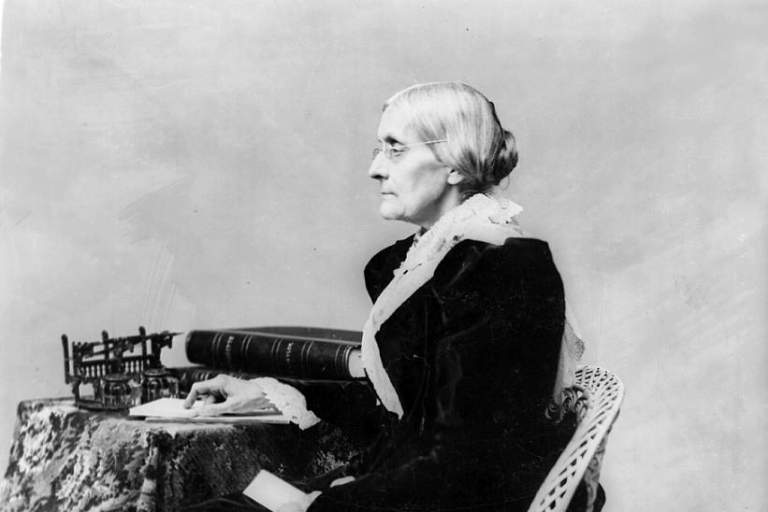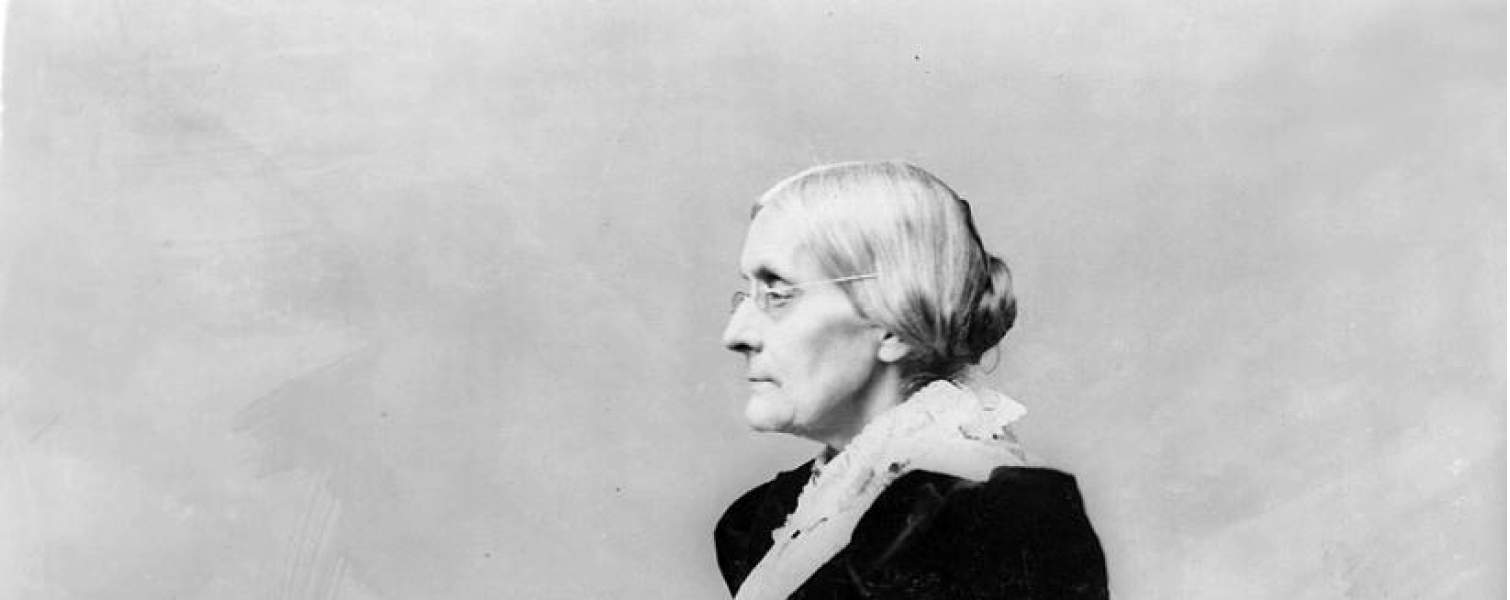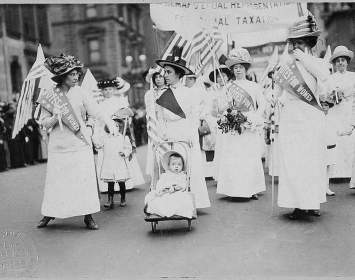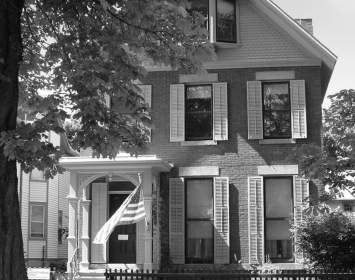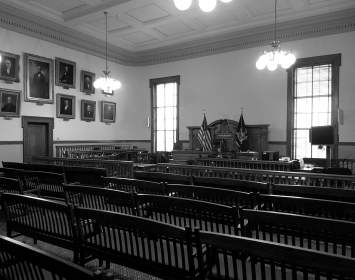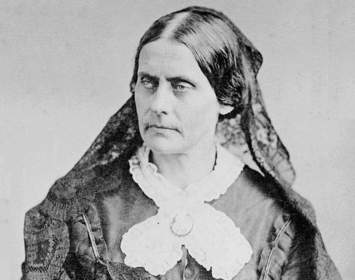On November 1, 1872, Susan B. Anthony and two other women attempted to register to vote in the U.S. presidential election. When registrars hesitated, Anthony overwhelmed them with legal arguments, and the men relented. On Election Day, November 5, Anthony voted for Ulysses S. Grant. She was one of fifteen women from her Rochester ward to cast a ballot. Attempting to vote was actually a common tactic among suffrage activists; Anthony's action commanded outsized attention because she and her colleagues actually voted.
Anthony was arrested on November 18, 1872, for violating the federal Enforcement Act of 1870, which provided in part that “Any person … who shall vote without having a legal right to vote … shall be deemed guilty of a crime.”
Following her arrest, Anthony delivered a speech titled “Is It a Crime for a U.S. Citizen to Vote?” at twenty-nine locations across Monroe County, in which Rochester is located. A Rochester newspaper reprinted the speech in its entirety. In response to this extensive pre-trial publicity, in May 1873, U.S. Attorney Richard Crowley requested a change of venue from the federal district court to the federal circuit court for the Northern New York District. That court would next meet in June in Canandaigua, the seat of Ontario County, which borders Monroe County to the east.
Anthony went to trial on June 18, 1873.
Susan B. Anthony discouraged talk of a pardon during her life; she viewed the conviction as a badge of honor. She was pardoned, however, on August 18, 2020, by President Donald J. Trump.
Thanks to Edward Varno for research assistance.
